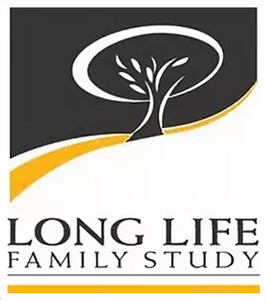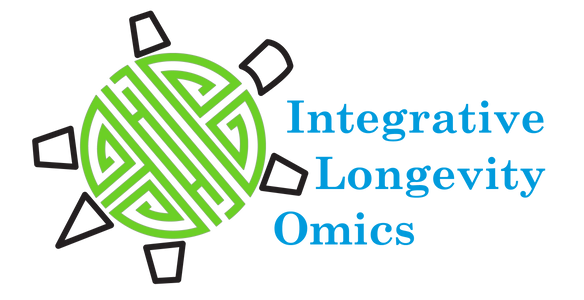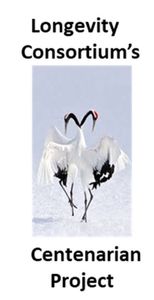Currently Funded Studies
Para Español, presiona AQUÍ
The New England Centenarian Study oversees four studies of exceptional longevity that are funded by the National Institute on Aging (NIA), an institute of the National Institutes of Health (NIH):

The Boston University Study Center of the Long Life Family Study (LLFS)
The Long Life Family Study was created based upon studies showing that exceptional longevity runs strongly within families. Between 2006 and 2009, about 550 families made up of approximately 5,500 individuals were enrolled and they have been followed since then with repeated clinical and other data collection as well as collection of blood samples for generation of genetic, protein and metabolic data.
Our Boston University study center is one of four centers that collect these data and samples. The other three centers are based at Columbia University, University of Pittsburgh, and University of Southern Denmark. All four sites are coordinated by a lead center at Washington University (St. Louis).

Integrative Longevity Omics (ILO) Study
The NIA/NIH funded ILO Study is aimed at enrolling 1,400 new centenarian and offspring participants. We perform careful and in-depth cognitive function testing via tele-video calls to test for Alzheimer’s disease and other aging-related dementias (which these individuals tend to greatly delay and sometimes even escape) and collect information about family history of longevity and medical history. We ask for a blood sample to generate a wide range of protein, metabolic and genetic data and a stool sample to study how specific types of gut bacteria facilitate healthy aging.
The microbiome (shotgun metagenomics) and gene expression data are generated by the Albert Tai, PhD laboratory at Tufts University School of Medicine. This huge amount of omics data are managed and analyzed by the Stefano Monti, PhD computational biomedicine laboratory at Boston University and Paola Sebastiani’s Center for Quantitative Methods and Data Science at Tufts Medical Center. The microbiome data are analyzed and annotated by the Daniel Segrè laboratory at Boston University. A blood sample is also obtained and provided to Boston University’s Center for Regenerative Medicine (CReM) and Dr. George Murphy’s laboratory to create induced pluripotent stem cells which can then be transformed into cells of specific tissue types such as brain, muscle and skin. These can then be used to study how cells from centenarians are able to age so slowly and be so resilient against aging and aging related diseases.
These efforts are complemented by similar molecular studies in animal models of exceptional longevity such as the naked mole rat which has a lifespan of 30 years (10 times longer than mice). This comparative species work is led by Vera Gorbunova, PhD at the University of Rochester.

Longevity Consortium’s Centenarian Project (LCCP)
The NIA/NIH funded LCCP is aimed at enrolling 450 centenarians and offspring and collect similar clinical and other data as what is collected in the ILO and LLFS studies so that eventually the data from these different studies can be combined and compared without concern for how the data might have been collected differently. Blood and stool samples are collected to generate protein, metabolomic, genetic and microbiome (gut bacteria) data for other projects performed by Longevity Consortium investigators.
Like the ILO, the LCCP also includes a comparative species component so that the human and animal studies data can be compared. The intent is that both approaches to the study of exceptional longevity will inform one another about specific genetic or other biological variants that warrant further study.

Resilience/Resistance Against Alzheimer’s Disease in Centenarians and Offspring (RADCO)
RADCO, also funded by the NIH/NIA, specifically studies centenarians and their offspring with the cognitive function level of people who are thirty years younger than they are. These individuals are called cognitive superagers. In addition to obtaining all of the data collected by the ILO and LCCP studies, RADCO participants may also undergo a state of the art MRI, additional lab tests are performed on their blood that are biomarkers of Alzheimer’s disease and other neurodegenerative processes and participants are also asked permission for brain donation for many molecular and biological studies.
RADCO is led by Drs. Andersen and Perls as well as Susan Bookheimer, PhD at UCLA. Study sites for participant recruitment and data collection are Boston University (Perls and Andersen), Albert Einstein College of Medicine (Sofiya Milman, MD, MS), Georgia State University (Vonetta Dotson, PhD) and UCLA (Mirella Diaz-Santos, PhD). Our MRI centers are at Massachusetts General Hospital (David Salat, PhD), Georgia State University (Vince Calhoun, PhD), UCLA (Robert Welsh, PhD) and Columbia University (Adam Brickman, PhD). Our Neuropathology effort is led by Shino Magaki MD, PhD at UCLA.
The data and biosample collection efforts support two projects with the overall scientific objective of gauging cognitive resilience among our study participants, understanding the underlying protective biology and translating that into potential preventive strategies and medications. The Cognitive Resilience and Resistance Phenotypes Project (Project 1) compares a participants cognitive function (Andersen, Brad Dickerson, MD) with their neuroimaging, plasma AD biomarkers and neuropathology findings to gauge their resilience to different indicators of Alzheimer’s disease or other causes of dementia. The Protective Factors and Mechanisms Project (Project 2) is the translation arm of RADCO; Led by Doo Yeon Kim, PhD, Rudy Tanzi, PhD, Dmitry Prokopenko, PhD and Winston Hide, PhD, the project discovers genes, candidate biological pathways and sets of mi-RNA regulators associated with the resilience endophenotypes characterized in Project 1. In-vitro models of AD incorporate cortical neurons, microglial cells and astrocytes created from centenarian cognitive superager induced pluripotent stem cell (iPSC) lines created by George Murphy’s laboratory at the Boston University Center for Regenerative Medicine are used to test the candidate pathways for how they cause resilience against AD.